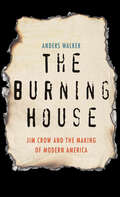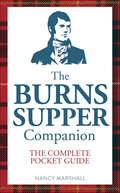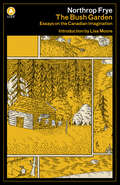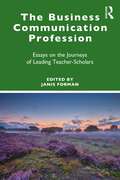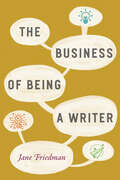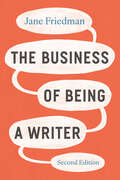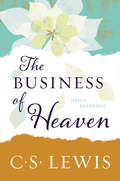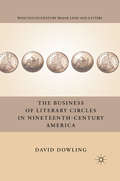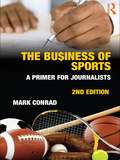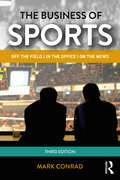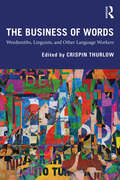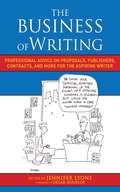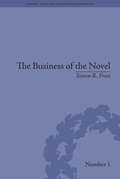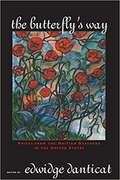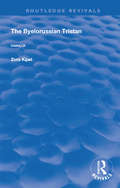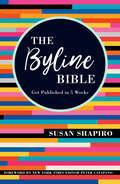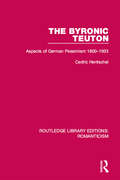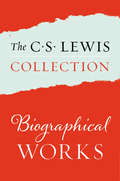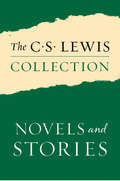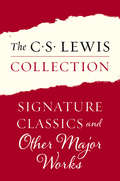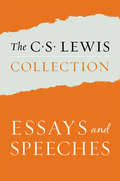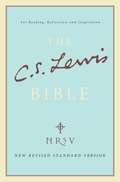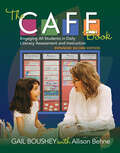- Table View
- List View
The Burning House: Jim Crow and the Making of Modern America
by Anders WalkerA startling and gripping reexamination of the Jim Crow era, as seen through the eyes of some of the most important American writers"Walker has opened up a fresh way of thinking about the intellectual history of the South during the civil-rights movement."—Robert Greene, The NationIn this dramatic reexamination of the Jim Crow South, Anders Walker demonstrates that racial segregation fostered not simply terror and violence, but also diversity, one of our most celebrated ideals. He investigates how prominent intellectuals like Robert Penn Warren, James Baldwin, Eudora Welty, Ralph Ellison, Flannery O&’Connor, and Zora Neale Hurston found pluralism in Jim Crow, a legal system that created two worlds, each with its own institutions, traditions, even cultures. The intellectuals discussed in this book all agreed that black culture was resilient, creative, and profound, brutally honest in its assessment of American history. By contrast, James Baldwin likened white culture to a &“burning house,&” a frightening place that endorsed racism and violence to maintain dominance. Why should black Americans exchange their experience for that? Southern whites, meanwhile, saw themselves preserving a rich cultural landscape against the onslaught of mass culture and federal power, a project carried to the highest levels of American law by Supreme Court justice and Virginia native Lewis F. Powell, Jr.Anders Walker shows how a generation of scholars and judges has misinterpreted Powell&’s definition of diversity in the landmark case Regents v. Bakke, forgetting its Southern origins and weakening it in the process. By resituating the decision in the context of Southern intellectual history, Walker places diversity on a new footing, independent of affirmative action but also free from the constraints currently placed on it by the Supreme Court. With great clarity and insight, he offers a new lens through which to understand the history of civil rights in the United States.
The Burns Supper Companion: The Complete Pocket Guide
by Nancy MarshallIn 1801, some five years after Robert Burns’ death, nine of his friends sat down to dinner in what is now known as Burns Cottage in Alloway to celebrate his extraordinary life and to give thanks for his friendship. Over the years the informal theme from that evening has developed into the ritual known as Burns Night. This best-selling book is the essential guide for anyone intending to hold or attend a Burns Night of any size. In addition to setting out the order of events for the evening, the Burns Supper Companion also offers fascinating insights into the traditions surrounding Burns Night. Nancy Marshall has spent a large part of her life living and working in Edinburgh. She read English Literature and Medieval History at Edinburgh University, going on to write widely about Scottish song and the poems and songs of Robert Burns.
The Bush Garden: Essays on the Canadian Imagination (A List)
by Northrop FryeOriginally published in 1971,The Bush Garden features Northrop Frye’s timeless essays on Canadian literature and painting, and an introduction by bestselling author Lisa Moore.In this cogent collection of essays written between 1943 and 1969, formidable literary critic and theorist Northrop Frye explores the Canadian imagination through the lens of the country’s artistic output: prose, poetry, and paintings. Frye offers insightful commentary on the works that shaped a “Canadian sensibility,” and includes a comprehensive survey of the landscape of Canadian poetry throughout the 1950s, including astute criticism of the work of E. J. Pratt, Robert Service, Irving Layton, and many others.Written with clarity and precision,The Bush Garden is a significant cache of literary criticism that traces a pivotal moment in the country’s cultural history and the evolution of Frye’s thinking at various stages of his career. These essays are evidence of Frye’s brilliance, and cemented his reputation as Canada’s — and the world’s — foremost literary critic.
The Business Communication Profession: Essays on the Journeys of Leading Teacher-Scholars
by Janis FormanThis book provides a unique orientation to the present, past, and future of the field of business communication by collecting reflective essays from some of its most influential scholars, teachers, and leaders. Through a series of essays that bridge personal narrative and critical analysis, this book mentors a new generation of students, teachers, and professionals as they encounter the challenges and opportunities of business communication and shape the future of the field. The authors—all influential figures and award winners—describe their personal histories with the field and discuss how major aspects have evolved over time. The essays examine the pathways through which scholars encounter the discipline, the professional challenges they face, the evolving content of the business communication curriculum, the development of business communication programs and institutions, the value of an entrepreneurial mindset for career development, and the relationships between research, teaching, and professional practice. They offer stories about a diversity of paths for achieving personal and professional success and invite readers to think about what lessons they can apply to their own career advancement and satisfaction. In total, this collection provides both a living history of the field and a series of real-world examples of business communication at its finest. This book is essential reading for students and scholars of business communication and can be used as a supplemental text for courses in business communication, professional communication, and communication career preparation.
The Business Communication Profession: Essays on the Journeys of Leading Teacher-Scholars
by Janis FormanThis book provides a unique orientation to the present, past, and future of the field of business communication by collecting reflective essays from some of its most influential scholars, teachers, and leaders. Through a series of essays that bridge personal narrative and critical analysis, this book mentors a new generation of students, teachers, and professionals as they encounter the challenges and opportunities of business communication and shape the future of the field. The authors—all influential figures and award winners—describe their personal histories with the field and discuss how major aspects have evolved over time. The essays examine the pathways through which scholars encounter the discipline, the professional challenges they face, the evolving content of the business communication curriculum, the development of business communication programs and institutions, the value of an entrepreneurial mindset for career development, and the relationships between research, teaching, and professional practice. They offer stories about a diversity of paths for achieving personal and professional success and invite readers to think about what lessons they can apply to their own career advancement and satisfaction. In total, this collection provides both a living history of the field and a series of real-world examples of business communication at its finest. This book is essential reading for students and scholars of business communication and can be used as a supplemental text for courses in business communication, professional communication, and communication career preparation.
The Business of Being a Writer (Chicago Guides to Writing, Editing, and Publishing)
by Jane Friedman“Destined to become a staple reference book for writers and those interested in publishing careers.” —Publishers WeeklyWriters talk about their work in many ways: as an art, as a calling, as a lifestyle. Too often missing from these conversations is the fact that writing is also a business. Those who want to make a full- or part-time job out of writing are going to have a more positive and productive career if they understand the basic business principles underlying the industry.This book offers the business education writers need but so rarely receive. It is meant for early-career writers looking to develop a realistic set of expectations about making money from their work. or for working writers who want a better understanding of the industry. Writers will gain a comprehensive picture of how the publishing world works—from queries and agents to blogging and advertising—and will learn how they can best position themselves for success over the long term.Jane Friedman has more than two decades of experience in the publishing industry, with an emphasis on digital media strategy for authors and publishers. She is encouraging without sugarcoating, blending years of research with practical advice that will help writers market themselves and maximize their writing-related income—and leave them empowered, confident, and ready to turn their craft into a career.“Friedman’s 20-plus years in the industry, launching and managing the social media presence of Writer’s Digest, along with her expertise in business strategies for authors and publishers, combine to create an invaluable compendium of practical advice.” —Library Journal (starred review)
The Business of Being a Writer, Second Edition (Chicago Guides to Writing, Editing, and Publishing)
by Jane FriedmanA thoroughly revised edition of the comprehensive guide to building and maintaining a successful career in writing. Writers talk about their work in many ways: as an art, as a calling, as a lifestyle. Too often missing from these conversations is the fact that writing is also a business, and those who want to make a living from their writing must understand the basic business principles underlying the industry. The Business of Being a Writer offers the business education writers need but so rarely receive. Jane Friedman is one of today’s leading experts on the publishing industry. Through her website, social media presence, online courses, email newsletters, and other media, she helps writers understand how to navigate the industry with confidence and intentionality. This book advises writers on how to build a platform in a way that aligns with their values, how to spot critical mindset issues that might sabotage their efforts before they even begin, how to publish strategically, and what it means to diversify income streams beyond book sales. For this second edition, Friedman has updated every topic to reflect how the industry has evolved over the past half decade. New features include a section on business and legal issues commonly faced by writers, exercises at the end of each chapter, and a wealth of sample materials posted on a companion website. Reaching beyond the mechanical aspects of publishing, The Business of Being a Writer will help both new and experienced writers approach their careers with the same creative spirit as their writing. Friedman is encouraging without sugarcoating reality, blending years of research with practical advice that will help writers market themselves and maximize their writing-related income. Her book will leave them empowered, confident, and ready to turn their craft into a sustainable career.
The Business of Heaven: Daily Readings
by C. S. LewisA repackaged edition of Lewis’s classic reading collection—reminiscent of the bestselling A Year with C. S. Lewis—featuring 365 selections from his writings that explore our connection to God.C. S. Lewis, author of Mere Christianity, The Screwtape Letters, The Great Divorce, The Chronicles of Narnia, and many other beloved classics, considers humankind’s spiritual journey in this collection of wise, meditative excerpts and writings. In these daily reflections, the great British writer, scholar, lay theologian, broadcaster, and Christian apologist, explores a range of connected themes, including "the serious business of heaven," "Nearness to God," "Heaven and Sexuality," and "Two Kinds of Good and Bad."
The Business of Literary Circles in Nineteenth-Century America
by David DowlingThis comprehensive study ranges from Irving's Knickerbockers, Emerson's Transcendentalists, and Garrison's abolitionists to the popular serial fiction writers for Robert Bonner's New York Ledger to unearth surprising convergences between such seemingly disparate circles.
The Business of Sports: A Primer for Journalists
by Mark ConradThis book explores the business aspect of sports with an orientation to those topics that are most relevant to journalists, providing the foundation for understanding the various parts of the sports business. Moving beyond sports writing, this text offers a distinct perspective on professional, college, and international sports organizations – structure, governance, labor issues, and other business factors within the sports community. Written clearly and compellingly, The Business of Sports includes cases (historical, current, and hypothetical) to illustrate how business concerns play a role in the reporting of sports. New features for the second edition include: updates throughout, including disciplinary policies throughout the major sports leagues expanded discussion of intellectual property issues and merchandising new sections on ethical issues in sports, aimed at journalists. Offering critical insights on the business of sports, this text is a required resource for sports journalists and students in sports journalism.
The Business of Sports: On the Field, in the Office, on the News
by Mark ConradThe Business of Sports provides a comprehensive foundation of the economic, organizational, legal and political components of the sports industry. Geared for journalism, communication and business students, but also an excellent resource for those working in sports, this text introduces readers to the ever-increasing complexity of an industry that is in constant flux. Now in its third edition, the volume continues to offer a wealth of statistics and case studies, up to date with the newest developments in sports business and focused on cutting-edge issues and topics, including the many changes in international sports and the role of analytics in decision-making and tax rules that have a major effect on athletes and teams.
The Business of Words: Wordsmiths, Linguists, and Other Language Workers
by Crispin ThurlowThe Business of Words examines the practices of ‘high-end’ language workers or wordsmiths where we find words being professionally designed, institutionally managed, and, inevitably, objectified for status and profit. Aligned with existing work on language and political economy in critical sociolinguistics and discourse studies, the volume offers a novel, complementary insight into the relatively elite practices of language workers such as advertisers, dialect coaches, publishers, judges, translators, public relations officers, fine artists, journalists, and linguists themselves. In fact, the book considers what academics might learn about language from other wordsmiths, opening a space for ‘dialogue’ between those researching language and those who also stake a claim to linguistic expertise and a way with words. Bringing together an array of leading international scholars from the cognate fields of discourse studies, sociolinguistics, and linguistic anthropology, this book is an essential resource for researchers, advanced undergraduate, and postgraduate students of English language, linguistics and applied linguistics, communication and media studies, and anthropology.
The Business of Writing: Professional Advice on Proposals, Publishers, Contracts, and More for the Aspiring Writer
by Oscar Hijuelos Jennifer LyonsWhether you're unclear on what to expect from your first book deal or just a little puzzled by your editor's whims, The Business of Writing is the book for you. In it, literary agent and publishing veteran Jennifer Lyons empowers aspiring and experienced writers with everything they need to know about the business of selling books, from publicity to legal and financial aspects of the trade. A senior agent for seventeen years before opening her own literary agency, Lyons has taught numerous courses on the business of writing at Sarah Lawrence College, and has visited both undergraduate and graduate writing programs to share her expert knowledge. This enjoyable guide brings Jennifer's in-depth tutorials to the broader public, balancing accessible, bulleted information for writers on the critical stages of acquiring and maintaining representation with interviews with professionals in the field. Interviewees include a Harper's magazine editor, a contracts manager, and other publishing professionals that you can expect to encounter as you advance in your career. Covering everything from how to write the perfect query letter to deconstructing the terminology of a publishing contract, this indispensable handbook to the writer's trade will give you a thorough introduction to the nuts and bolts of publishing.
The Business of the Novel: Economics, Aesthetics and the Case of Middlemarch (Literary Texts and the Popular Marketplace #1)
by Simon R FrostThis study shows how aesthetics and economics have been combined in a great work of literature. Frost examines the history of Middlemarch’s composition and publication within the context of Victorian demand, then goes on to consider the interpretation, reception and consumption of the book.
The Butterfly Alphabet Book (Jerry Pallotta's Alphabet Books)
by Jerry Pallotta Brian CassieWelcome to the wonder and beauty of butterflies! Look through the wings of a Transparent, marvel at the size of the Queen Alexandra Birdwing, and try to find the camouflaged Indian Leaf Butterfly! Learn about these amazing butterflies, and more, as you read from A to Z about a group of the world's most beautiful insects. Jerry Pallotta and Brian Cassie's fun, informative text, accompanied by Mark Astrella's detailed and breathtaking illustrations, will be a sure favorite with both the young butterfly lover and the experienced lepidopterist!
The Butterfly's Way
by Edwidge DanticatIn five sections—Childhood, Migration, Half/First Generation, Return, and Future—the thirty-three contributors to this anthology write movingly, often hauntingly, of their lives in Haiti and the United States. Their dyaspora, much like a butterfly's fluctuating path, is a shifting landscape in which there is much travel between two worlds, between their place of origin and their adopted land. <P><P> This compilation of essays and poetry brings together Haitian-Americans of different generations and backgrounds, linking the voices for whom English is a first language and others whose dreams will always be in French and Kreyòl. Community activists, scholars, visual artists and filmmakers join renowned journalists, poets, novelists and memoirists to produce a poignant portrayal of lives in transition. <P><P> Edwidge Danticat, in her powerful introduction, pays tribute to Jean Dominique, a sometime participant in the Haitian dyaspora and a recent martyr to Haiti's troubled politics, and the many members of the dyaspora who refused to be silenced. Their stories confidently and passionately illustrate the joys and heartaches, hopes and aspirations of a relatively new group of immigrants belonging to two countries that have each at times maligned and embraced them.
The Byelorussian Tristan (Routledge Revivals)
by Zora KipelOriginally published in 1988, this book is a complete translation of The Byelorussian Tristan, alongside textual notes.
The Byline Bible: Get Published in Five Weeks
by Susan Shapiro Peter CatapanoNewspaper, magazine, and web editors are desperate for new voices and anyone, in any field, can break in. So why not you? Over the last two decades, writing professor Susan Shapiro has taught more than 25,000 students of all ages and backgrounds at NYU, Columbia, Temple, The New School, and Harvard University. Now in The Byline Bible she reveals the wildly popular "Instant Gratification Takes Too Long" technique she's perfected, sharing how to land impressive clips to start or re-launch your career. In frank and funny prose, the bestselling author of 12 books walks you through every stage of crafting and selling short nonfiction pieces. She shows you how to spot trendy subjects, where to start, finish and edit, and divulges specific steps to submit work, have it accepted, get paid, and see your byline in your favorite publication in lightning speed. With a foreword by Peter Catapano, long-time editor at the New York Times where many of Shapiro’s pupils have first seen print, this book offers everything you need to learn to write and sell your story in five weeks or less, including:How to craft a cover letter and subject heading to get read and reviewed quicklyWho pay for essays, op-eds, regional, humor, or service pieces from unknown writersWays to follow up, build on your success, land a TV or radio spot, become a regular contributor, staff writer, and find a literary agent for your book with one amazing clipWhether you're just starting out or ready to enhance your professional portfolio, this essential guide will prove that three pages can change your life.
The Byronic Teuton: Aspects of German Pessimism 1800-1933 (Routledge Library Editions: Romanticism #16)
by Cedric HentschelFirst published in 1940. The Byronic Teuton explores the delineation in German literature, between 1800 and 1933, of certain pessimistic ideas and emotions that were being expressed by writers, artists and academics. This manifestation of negative sentiments was defined by Hentschel as ‘Byronism’. This title will be of interest to students of literature.
The C. S. Lewis Collection: Biographical Works
by C. S. LewisWith his trademark warmth and wit, Lewis shares his biographical and personal faith journey with readers. Includes:• Surprised by Joy• A Grief Observed• All My Road Before Me• Letters to an American Lady• Letters of C. S. Lewis• The Collected Letters of C. S. Lewis, Volume I• The Collected Letters of C. S. Lewis, Volume II• The Collected Letters of C. S. Lewis, Volume III
The C. S. Lewis Collection: Novels and Stories
by C. S. LewisWith his trademark warmth and wit, Lewis uses fiction as a vehicle for revelation.Includes: • The Screwtape Letters • The Great Divorce • Letters to Malcolm, Chiefly on Prayer • The Pilgrim’s Regress • Out of the Silent Planet • Perelandra • That Hideous Strength • The Dark Tower • Till We Have Faces
The C. S. Lewis Collection: Signature Classics and Other Major Works
by C. S. LewisEight of C. S. Lewis’s timeless signature classics together in one volume.<P><P> Includes:<P> * Mere Christianity<P> * The Screwtape Letters<P> * The Great Divorce<P> * The Problem of Pain<P> * Miracles<P> * A Grief Observed<P> * The Abolition of Man<P> * The Four Loves<P> * Reflections on the Psalms<P> * Surprised by Joy<P> * Letters to Malcolm
The C. S. Lewis Collection: The Weight of Glory; God in the Dock; Christian Reflections; On Stories; Present Concerns; and The World's Last Night
by C. S. LewisWith his trademark warmth and wit, Lewis demonstrates his wide range of interests in this collection of writings—a must-read for fans of Lewis’s creative works.Includes:• The Weight of Glory• God in the Dock• Christian Reflections• On Stories• Present Concerns• The World’s Last Night
The C.S. Lewis Bible
by C. S. LewisBeloved author C. S. Lewis is one of the world's most influential Christian thinkers and a trusted companion for millions of readers. The C. S. Lewis Bible draws upon the distinctive wisdom of Lewis's celebrated spiritual classics-Mere Christianity, The Screwtape Letters, The Great Divorce, The Problem of Pain, Miracles, and A Grief Observed-as well as his other distinguished works, and pairs them alongside the life-giving words of Scripture. As you engage in devotional Bible reading with the full text of the trusted NRSV Bible, you will also gain insight from Lewis's writings and spiritual journey while exploring key issues in the life of faith. Each reading will draw you deeper into Scripture as you wrestle with and meditate on spiritual truths woven throughout the text. The C. S. Lewis Bible is an indispensable companion for everyone who cherishes Lewis's timeless words and seeks to meditate on the truths of Scripture.
The CAFE Book: Engaging All Students in Daily Literacy Assessment and Instruction
by Gail Boushey Allison BehneFor the past ten years, Gail Boushey and Allison Behne worked with hundreds of teachers and students nationwide to gain insightsinto the best practices for reading instruction. Using their findings, they developed The CAFE Book, Expanded Second Edition: Engaging All Students in Daily Literacy Assessment and Instruction to share what their research has proven - that reading instruction is not about the setting or the book level, but rather effective reading instruction is based off of what the student needs in that moment.With the release of The CAFE Book in 2009, the CAFE system (Comprehension, Accuracy, Flluency, and expanding Vocabulary) has been implemented in classrooms all over the world. It changed the way educators assess, teach, and track student information and has positively impacted the way students learn, practice, and talk about reading.The CAFE Book, Expanded Second Edition builds on the same research-based, student-centered foundations, but now includes: Seven Steps from Assessment to Instruction to plan data-driven classworkThe Instruction Protocol - a framework to guide your teaching and planning CAFE's Essential Elements resource to guide your understanding of student-focused instructionA revised CAFE menu and a checklist of skills vital for emerging readersReady Reference Guides that include when to teach the strategy, options for differentiating methods, and partner strategiesSignificantresources to help with lesson planning, assessments and goal setting, and parent involvementNew and improved forms for bothonline conferring notebook and a pencil/paper notebookto support more effective conferring with studentsThe CAFE Book, Expanded Second Edition offers a variety of tools to structure your literacy block and create an environment where your students are engaged readers and writers with resources that set them up for success. The CAFE system is all you need to support, guide, and coach your students toward the strategies that will move them forward.
